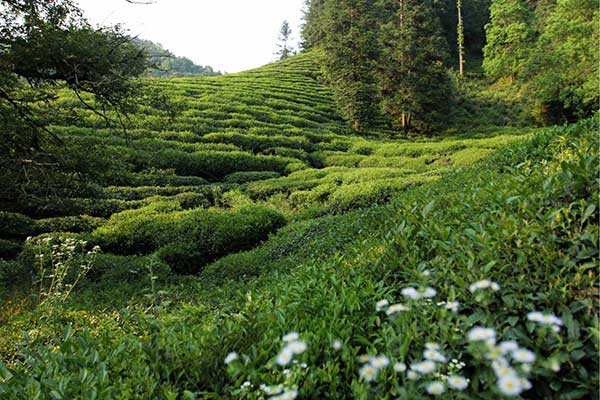Organic tea planters sow seeds of a more sustainable future
 |
|
[Photo by Sun Sheng/For China Daily] |
But his pleas fell on deaf ears. Despite having free organic fertilizers provided by Fang, they still applied chemical fertilizers to boost output, thinking that Fang could not tell the difference.
"I was disappointed. But common sense told me it would take time to change their entrenched planting methods. So I continued to lobby them," he said.
Li helped Fang persuade the farmers to abandon chemical fertilizers and selected some residents as a small inspection team armed with a gong and a drum. If the team found a farmer applying chemical fertilizer or pesticide, they would beat the gong and strike the drum to inform the neighborhood.
The biggest change came with the harvest season, when the farmers found that the price of fresh organic tea was three times that of nonorganic tea, and that its quality could be discerned easily with a test.
The farmers' efforts paid off. In 2006, the average per capita annual income of organic tea planters in Youlong hit 5,000 yuan, double the provincial average.
They then looked to Fang to help them to explore new commercial opportunities. Fang did not let them down.
He began selling Youlong organic tea overseas, and began to seek ways to benefit more farmers beyond Youlong.
He set up an agricultural cooperative that has 2,000 hectares of tea gardens along the Xin'an River, of which more than one-fifth meet the organic agricultural standards of the United States and the European Union, and have won certifications that qualify their crops for those markets.
In 2010, a buyer from Germany visited the tea gardens, and was so impressed by the farmers' rigorous organic planting and the well-preserved natural conditions that he offered them 100,000 euros ($117,600) a year to encourage them to maintain their high standards.
Last year, Fang's cooperative exported organic tea worth $6 million to the US, Germany, the United Kingdom and France.
In 2012, the government initiated an ecological preservation campaign. Subsidies are provided to encourage farmers to replace chemical fertilizers with organic ones. The subsidy covers almost one-third of the cooperative's expenditure on organic fertilizers.
The government's support has buoyed his confidence in the future of the organic tea business. He plans to ensure that all 2,000 hectares of tea gardens meet the requirements of Western markets within 10 years.
















